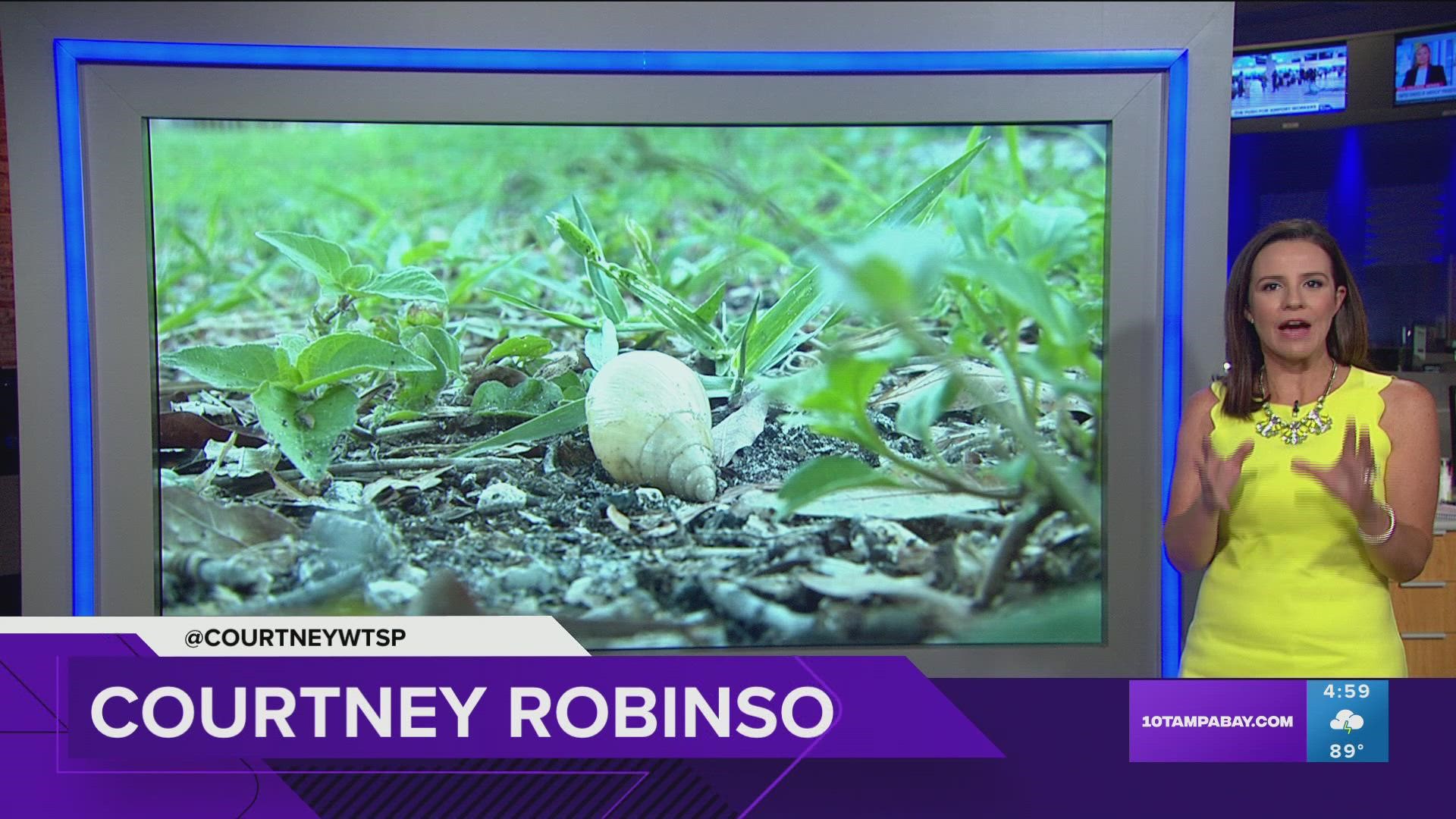CLEARWATER, Fla — Less than one month after giant African land snails were first detected in Pasco County, the Florida Department of Agriculture and Consumer Services says 1,000 of the invasive creatures have been collected.
Florida Agriculture Commissioner Nikki Fried held a news conference Thursday in Clearwater to discuss the plans to purge "one of the most damaging snails in the world."
She explained that the snails pose "a clear threat to our agricultural and natural areas" as they are known to consume at least 500 different types of plants.
The species can also eat the paint and stucco off of a home as a calcium source for shell hardening, according to FDACS.
The giant African land snails can also bring serious health risks to humans as they can carry a parasite called rat lungworm, which can cause meningitis in humans.
“It causes the brain to swell and the covering of the brain to be inflamed," Norman Beatty, an infectious disease expert and associate professor of medicine at the University of Florida, explained to 10 Tampa Bay.
Dr. Greg Hodges, the assistant director of the Division of Plant Industry, joined the commissioner to give some information on the history of these harmful snails in Florida.
He explained that the giant African land snail has been eradicated twice in Florida: once in 1975 and another in 2021.
During the first case, about 17,000 snails were collected over the course of seven years, according to Hodges. Around 170,000 were collected over the course of 10 years in the second instance.
Because Florida has successfully eradicated the creatures before, Hodges says he's confident the state can do it again this time around.
“We will be successful but it will take some time," he said.
When the snails were first detected on June 23, FDAC's Division of Plant Industry began to survey the area, launch a quarantine for parts of Pasco County and started treatment to eliminate the pest by "treating properties with a metaldehyde-based molluscicide."
Under the quarantine, people are not allowed to transport plants, soil, yard waste, debris or compost in the affected area without a compliance agreement with FDACS.
Jay Pasqua, who owns East Richey Lawn Mower and Equipment, said he has been finding the invasive snails all over his property. His friend who was selling plants currently can't do business right now.
“Right now he has been instructed not to remove any of these plants," Pasqua said.
Pasqua explained agriculture officials have been coming by the area on a regular basis and have been doing inspections and re-treating where it is necessary.
The state has also deployed snail-sniffing dogs that are specially trained to help them identify the species.
Bryan Benson, the deputy director of the Division of Plant Industry, said the dogs, which are trained to sit if they smell the snails, "play a vital role in the eradication process."
If you think you see one of these snails, email a photo of it to DPIHelpline@FDACS.gov or call the Division of Plant Industry Helpline at 1-888-397-1517.
"Please do not attempt to handle them yourself," Fried said.

